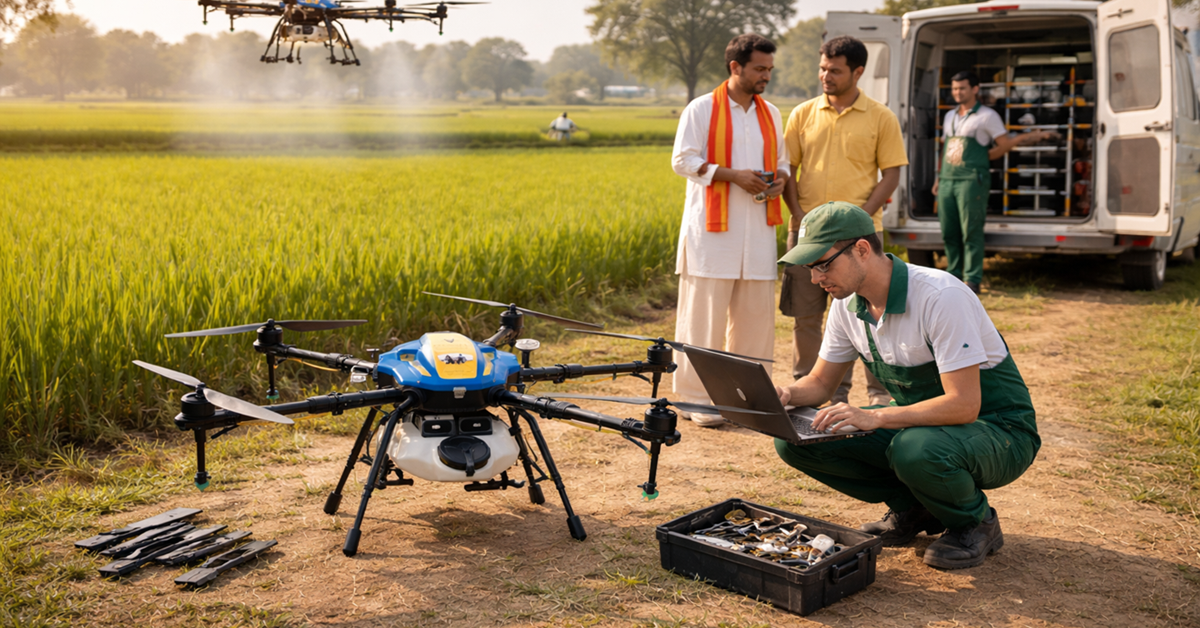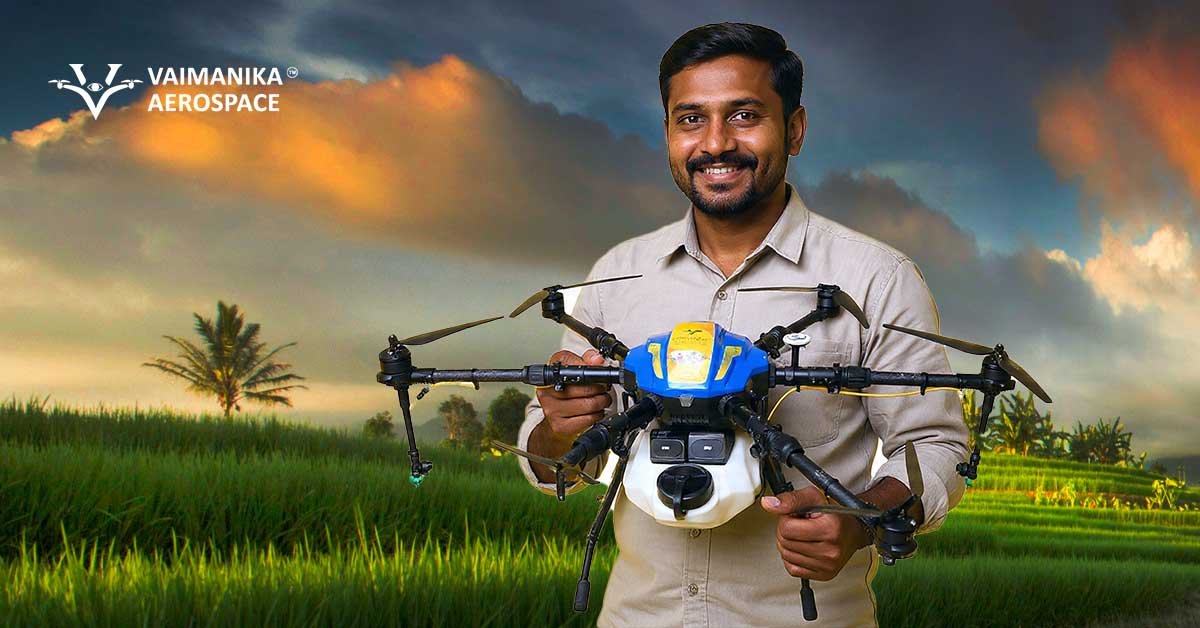Introduction
As drone technology continues to revolutionize industries across the globe, the demand for skilled drone pilots is on the rise. Drones are no longer just for military surveillance or recreational use; they have become an integral tool in various sectors, especially agriculture, construction, and logistics. To keep up with this technological evolution, there is an increasing need for drone pilots who are not only skilled in flying drones but also knowledgeable about the specific applications of drone technology. This is where drone pilot education and certification programs play a vital role.
In this blog, we’ll explore the significance of drone pilot training, how certification programs are preparing the next generation of drone operators, and why it’s crucial for industries like agriculture to invest in well-trained professionals.
Why Drone Pilot Education is Essential
Drones have the potential to transform industries, particularly agriculture, where they can be used for crop monitoring, spraying pesticides, and even planting seeds. However, using drones effectively requires more than just knowing how to operate the technology. Drone pilots need to have a deep understanding of the software, data analysis, and regulations that govern drone use.
For agriculture, this means understanding the nuances of precision farming, aerial imaging, and data interpretation. Drones provide vital insights into soil conditions, crop health, and pest management, but these insights are only useful if the pilot can correctly interpret the data and make informed decisions. This is where proper training and certification come in.
What Does Drone Pilot Education Involve?
Drone pilot education programs cover several key areas, from technical drone operation to safety protocols and industry-specific applications. These programs are designed to equip aspiring drone pilots with the skills and knowledge they need to operate drones efficiently and safely.
-
Basic Flight Skills:
Pilots learn to fly drones under different conditions and environments, ensuring they can handle a variety of situations, from calm weather to gusty winds. -
Data Collection & Analysis:
For agricultural drones, pilots must be proficient in using drones equipped with sensors and cameras to capture valuable data. Education programs teach how to process and interpret this data, including mapping and aerial imagery. -
Regulatory Knowledge:
Every drone operation, especially in agriculture, must comply with local regulations. In India, for example, the government has introduced the Drone Policy, which pilots must be well-versed in. Certification programs ensure that pilots are aware of airspace rules, no-fly zones, and safety protocols. -
Technology Integration:
Today’s drones come with a range of sensors, GPS systems, and cameras. Pilots must know how to operate these complex systems, making technology integration a key component of their education.
Certification Programs for Drone Pilots
Certification programs offer a structured pathway to becoming a licensed drone pilot. These programs are often recognized by regulatory authorities, making them essential for those who want to operate drones in professional settings. For agriculture, certification ensures that drone pilots meet the standards required for tasks like crop surveillance, precision farming, and pesticide spraying.
Key Components of a Drone Pilot Certification Program:
-
Theoretical Exams:
Pilots must pass written exams that test their knowledge of aviation laws, safety regulations, and drone-specific technologies. -
Practical Flight Tests:
Certification programs require aspiring pilots to demonstrate their skills through practical flight tests, ensuring they can operate drones safely and efficiently. -
Ongoing Education:
Drone technology evolves rapidly, and so do regulations. Certified pilots are often required to complete ongoing education to keep up with industry changes, ensuring they remain up-to-date on new techniques and laws.
Why Invest in Drone Pilot Education?
-
Improved Efficiency and Safety:
Properly trained drone pilots reduce the risk of accidents and damage to equipment. They can also operate drones more efficiently, resulting in time and cost savings for businesses, particularly in agriculture. -
Increased Adoption of Drone Technology:
As the demand for drones grows, so does the need for qualified pilots. Offering certification programs can encourage more people to adopt drone technology and pursue careers in this field. -
Boosting Agricultural Productivity:
With drones becoming an integral tool in precision farming, having well-trained pilots who can use them effectively will directly contribute to increased agricultural productivity and sustainability. -
Job Creation and Economic Growth:
The drone industry is expected to create thousands of jobs in the coming years. By investing in education and certification programs, governments and businesses are helping to foster new opportunities for individuals and local economies.
Government Initiatives and Industry Partnerships
Government support plays a crucial role in shaping the future of drone pilot education. In many countries, including India, the government has introduced policies to regulate drone use, which often includes provisions for training and certification. Programs like India’s Drone Didi initiative are empowering rural women to become drone pilots, showing the broader social impact of such training programs.
Partnerships between educational institutions, drone startups like Vaimanika Aerospace, and government bodies are helping to create a robust ecosystem for drone pilot training. These collaborations ensure that aspiring pilots have access to the latest technology, training materials, and certifications.
Conclusion
The future of drone technology is bright, and with that comes the need for a new generation of skilled drone pilots. Through specialized education and certification programs, we can ensure that these pilots are equipped with the knowledge and skills they need to thrive in the ever-evolving field of drone technology. For industries like agriculture, these programs are not just an investment in the technology itself but in the future of sustainable, efficient, and productive farming.




